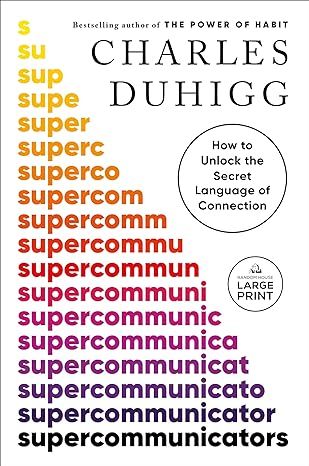Supercommunicators: How to Unlock the Secret Language of Connection
4.4
-
797 ratings
NEW YORK TIMES BESTSELLER • From the author of The Power of Habit, a fascinating exploration of what makes conversations work—and how we can all learn to be supercommunicators at work and in life
“A winning combination of stories, studies, and guidance that might well transform the worst communicators you know into some of the best.”—Adam Grant, author of Think Again and Hidden Potential
Come inside a jury room as one juror leads a starkly divided room to consensus. Join a young CIA officer as he recruits a reluctant foreign agent. And sit with an accomplished surgeon as he tries, and fails, to convince yet another cancer patient to opt for the less risky course of treatment. In Supercommunicators, Charles Duhigg blends deep research and his trademark storytelling skills to show how we can all learn to identify and leverage the hidden layers that lurk beneath every conversation.
Communication is a superpower and the best communicators understand that whenever we speak, we’re actually participating in one of three conversations: practical (What’s this really about?), emotional (How do we feel?), and social (Who are we?). If you don’t know what kind of conversation you’re having, you’re unlikely to connect.
Supercommunicators know the importance of recognizing—and then matching—each kind of conversation, and how to hear the complex emotions, subtle negotiations, and deeply held beliefs that color so much of what we say and how we listen. Our experiences, our values, our emotional lives—and how we see ourselves, and others—shape every discussion, from who will pick up the kids to how we want to be treated at work. In this book, you will learn why some people are able to make themselves heard, and to hear others, so clearly.
With his storytelling that takes us from the writers’ room of The Big Bang Theory to the couches of leading marriage counselors, Duhigg shows readers how to recognize these three conversations—and teaches us the tips and skills we need to navigate them more successfully.
In the end, he delivers a simple but powerful lesson: With the right tools, we can connect with anyone.
Kindle
$14.99
Available instantly
Audiobook
$0.00
with membership trial
Hardcover
$18.65
Paperback
$23.08
Ships from
Amazon.com
Payment
Secure transaction
ISBN-10
0593862066
ISBN-13
978-0593862063
Print length
448 pages
Language
English
Publisher
Random House Large Print
Publication date
February 19, 2024
Dimensions
6.1 x 0.98 x 9.17 inches
Item weight
15 ounces
Popular Highlights in this book
High centrality participants tended to ask ten to twenty times as many questions as other participants.
Highlighted by 1,791 Kindle readers
To communicate with someone, we must connect with them. When we absorb what someone is saying, and they comprehend what we say, it’s because our brains have, to some degree, aligned.
Highlighted by 1,279 Kindle readers
Product details
ASIN :
B0C5VBDC65
File size :
21325 KB
Text-to-speech :
Enabled
Screen reader :
Supported
Enhanced typesetting :
Enabled
X-Ray :
Enabled
Word wise :
Enabled
Editorial Reviews
“This is not just a riveting read about how to understand others better. It’s also a revealing look at how to be understood. Charles Duhigg delivers a winning combination of stories, studies, and guidance that might well transform the worst communicators you know into some of the best.”—Adam Grant, #1 New York Times bestselling author of Think Again and Hidden Potential, and host of the podcast Re:Thinking
“Our personal and professional success depend upon our ability to understand and be understood, and yet we typically leave this up to intuition. In Supercommunicators, Charles Duhigg goes through a mountain of research—and some riveting stories—and unearths practical tactics to show that anyone can become a more effective listener, speaker, and even social media poster.”—David Epstein, bestselling author of Range and The Sports Gene
“This book stayed with me. I found myself thinking about how many questions I ask and how often I laugh in conversation. Given how much talking we all do, it��’s amazing how little we understand. A much-needed guide to connecting in disconnected times.”—Amanda Ripley, author of High Conflict
“Charles Duhigg does it again, with a book we all need to read. Using his unique mix of stories and science, he gives us Supercommunicators, a guide to better conversation and deeper human connection. If you want to improve your communication skills at work and in life, this book is the place the start.”—Arthur C. Brooks, professor, Harvard Kennedy School and Harvard Business School, and #1 New York Times bestselling author
Sample
1
The Matching Principle
How to Fail at Recruiting Spies
If Jim Lawler was being honest with himself, he had to admit that he was terrible at recruiting spies. So bad, in fact, that he spent most nights worrying about getting fired from the only job he had ever loved, a job he had landed two years earlier as a case officer for the Central Intelligence Agency.
It was 1982 and Lawler was thirty years old. He had joined the CIA after attending law school at the University of Texas, where he had gotten mediocre grades, and then cycling through a series of dull jobs. One day, unsure what to do with his life, he telephoned a CIA headhunter he had once met on campus. A job interview followed, then a polygraph test, then a dozen more interviews in various cities, and then a series of exams that seemed designed to ferret out everything Lawler didn’t know. (Who, he wondered, memorizes rugby world champions from the 1960s?)
Eventually, he made it to the final interview. Things weren’t looking good. His exam performances had been poor to middling. He had no overseas experience, no knowledge of foreign languages, no military service or special skills. Yet, the interviewer noted, Lawler had flown himself to Washington, D.C., for this interview on his own dime; had persisted through each test, even when it was clear he didn’t have the first clue how to answer most questions; had responded to every setback with what seemed like admirable, if misplaced, optimism. Why, the man asked, did he want to join the CIA so badly?
“I’ve wanted to do something important my entire life,” Lawler replied. He wanted to serve his country and “bring democracy to nations yearning for freedom.” Even as the words came out, he realized how ridiculous they sounded. Who says yearning in an interview? So he stopped, took a breath, and said the most honest thing he could think of: “My life feels empty,” he told the interviewer. “I want to be part of something meaningful.”
A week later the agency called to offer him a job. He accepted immediately and reported to Camp Peary—the Farm, as the agency’s training facility in Virginia is known—to be tutored in lock picking, dead drops, and covert surveillance.
The most surprising aspect of the Farm’s curriculum, however, was the agency’s devotion to the art of conversation. In his time there, Lawler learned that working for the CIA was essentially a communications job. A field officer’s mandate wasn’t slinking in shadows or whispering in parking lots; it was talking to people at parties, making friends in embassies, bonding with foreign officials in the hope that, someday, you might have a quiet chat about some critical piece of intelligence. Communication is so important that a summary of CIA training methods puts it right up front: “Find ways to connect,” it says. “A case officer’s goal should be to have a prospective agent come to believe, hopefully with good reason, that the case officer is one of the few people, perhaps the ONLY person, who truly understands him.”
Lawler finished spy school with high marks and was shipped off to Europe. His assignment was to establish rapport with foreign bureaucrats, cultivate friendships with embassy attachés, and develop other sources who might be willing to have candid conversations—and thereby, his bosses hoped, open channels for the kinds of discussions that make the world’s affairs a bit more manageable.
Lawler’s first few months abroad were miserable. He tried his best to blend in. He attended black-tie soirees and had drinks at bars near embassies. Nothing worked. There was a clerk from the Chinese delegation he met après-ski and repeatedly invited to lunch and cocktails. Eventually Lawler worked up the courage to inquire if his new friend, perhaps, wanted to earn some extra cash passing along gossip he heard inside his embassy? The man replied that his family was quite wealthy, thank you, and his bosses tended to execute people for things like that. He would pass.
Then there was a receptionist from the Soviet consulate who seemed promising until one of Lawler’s superiors took him aside and explained that she, in fact, worked for the KGB and was trying to recruit him.
Eventually, a career-saving opportunity appeared: A CIA colleague mentioned that a young woman from the Middle East, who worked in her country’s foreign ministry, was visiting the region. Yasmin was on vacation, the colleague explained, staying with a brother who had moved to Europe. A few days later, Lawler managed to “bump into” her at a restaurant. He introduced himself as an oil speculator. As they began talking, Yasmin mentioned that her brother was always busy, never available for sightseeing. She seemed lonely.
Lawler invited her to lunch the next day and asked about her life. Did she like her job? Was it hard living in a country that had recently undergone a conservative revolution? Yasmin confided that she hated the religious radicals who had come to power. She longed to move away, to live in Paris or New York, but for that she needed money, and it had taken months of saving just to afford this brief trip.
Lawler, sensing an opening, mentioned that his oil company was looking for a consultant. It was part-time work, he said, assignments she could do alongside her job at the foreign ministry. But he could offer her a signing bonus. “We ordered champagne and I thought she was going to start crying, she was so happy,” he told me.
After lunch, Lawler rushed back to the office to find his boss. Finally, he had recruited his first spy! “And he tells me, ‘Congratulations. Headquarters is gonna be overjoyed. Now you need to tell her you’re CIA and you’ll want information about her government.’ ” Lawler thought that was a terrible idea. If he was honest with Yasmin, she’d never speak to him again.
But his boss explained that it was unfair to ask someone to work for the CIA without being forthright. If Yasmin’s government ever found out, she would be jailed, possibly killed. She had to understand the risks.
So, Lawler continued meeting with Yasmin, and tried to find the right moment to reveal his true employer. She became increasingly candid as they spent more time together. She was ashamed that her government was shutting down newspapers and prohibiting free speech, she told him, and despised the bureaucrats who had made it illegal for women to study certain topics in college and had forced them to wear hijabs in public. When she first sought out a job with the government, she said, she had never imagined things would get this bad.
Lawler took this as a sign. One night, over dinner, he explained that he was not an oil speculator, but, rather, an American intelligence officer. He told her that the United States wanted the same things she did: To undermine her country’s theocracy, to weaken its leaders, to stop the repression of women. He apologized for lying about who he was, but the job offer was real. Would she consider working for the Central Intelligence Agency?
“As I talked, I watched her eyes get bigger and bigger, and she started gripping the tablecloth, and then shaking her head, no-no-no, and, when I finally stopped, she started crying, and I knew I was screwed,” Lawler told me. “She said they murdered people for that, and there was no way she could help.” There was nothing he could say to convince her to consider the idea. “All she wanted was to get away from me.”
Lawler went back to his boss with the bad news. “And he says, ‘I’ve already told everyone you recruited her! I told the division chief, and the chief of station, and they told D.C. Now you want me to tell them you can’t close the deal?’ ”
Lawler had no idea what to do next. “No amount of money or promises would have convinced her to take a suicidal risk,” he told me. The only possible way forward was convincing Yasmin that she could trust him, that he understood her and would protect her. But how do you do that? “They taught me, at the Farm, that to recruit someone, you have to convince them that you care about them, which means you have to actually care about them, which means you have to connect in some way. And I had no idea how to make that happen.”
How do we create a genuine connection with another person? How do we nudge someone, through a conversation, to take a risk, embrace an adventure, accept a job, or go on a date?
Let’s lower the stakes. What if you’re trying to bond with your boss, or get to know a new friend: How do you convince them to let down their guard? What should you say to show you’re listening?
Over the past few decades, as new methods for studying our behaviors and brains have emerged, these kinds of questions have driven researchers to examine nearly every aspect of communication. Scientists have scrutinized how our minds absorb information, and have found that connecting with others through speech is both more powerful, and more complicated, than we ever realized. How we communicate—the unconscious decisions we make as we speak and listen, the questions we ask and the vulnerabilities we expose, even our tone of voice—can influence who we trust, are persuaded by, and seek out as friends.
Read more
About the authors
Charles Duhigg
My name is Charles Duhigg, and I'm a reporter for The New Yorker Magazine and the author of The Power of Habit, Smarter Faster Better, and Supercommunicators: How to Unlock the Secret Language of Connection (coming out on February 20, 2024!)
While I worked at the New York Times, I won a Pulitzer Prize for a series about Apple named "The iEconomy". Before that, I wrote about the 2008 financial crisis, how companies take advantage of the elderly, and reported from Iraq. (For those and other articles, I won the National Journalism Award, the Investigative Reporters and Editors' Medal, the National Academies' reporting award and other recognitions.)
But let’s be honest, you aren’t visiting this page so I can brag about series and awards. (Unless you’re my mom. Hi mom!)
I’m also a native of New Mexico. I studied history at Yale and received an MBA from Harvard Business School. I now live in Santa Cruz, CA with my wife and two children and, before becoming a journalist, was a bike messenger in San Francisco for one terrifying day.
I would love to hear from you.
Read more
Reviews
Customer reviews
4.4 out of 5
797 global ratings
Jeffrey R. Wells
5
A Must-Read to Understand Effective Communication
Reviewed in the United States on May 29, 2024
Verified Purchase
This was an insightful and engaging read. The book masterfully delves into the nuances of effective communication, offering practical strategies and real-life examples. It empowers readers to enhance their interpersonal skills, making connections more meaningful and impactful. The author's clear, concise writing style makes complex concepts easy to grasp. Whether you want to improve your personal relationships or professional interactions, this book provides valuable tools and techniques. It's a must-read for anyone eager to become a more confident and compelling communicator. Highly recommended for its actionable advice and transformative insights.
Read more
Joshua J Tuinder
5
Now to put it all to work…
Reviewed in the United States on June 3, 2024
Verified Purchase
This was an exceptional read. The smart stories mixed with the smart science mixed with the smart words of Charles Duhigg made this an extremely fun experience. I feel like I have what it takes to improve my skills as a communicator and that I may even be on the brink of obtaining supercommunicator status. 😎This book will help anyone who is working on their communication as well as open your eyes to how you treat those around you. Exceptional.
Read more
Santa Monica Dad
5
Another Important Effort by Duhigg
Reviewed in the United States on February 22, 2024
Verified Purchase
Duhigg delivers yet another masterpiece that is both thought-provoking and practical. In the book, Duhigg uses compelling research to demonstrate how anyone can enhance their communication skills. The anecdotes and case studies are not only enlightening but also relatable, making the book a captivating read from start to finish.
What sets "Supercommunicators" apart is its blend of theory and application. Duhigg doesn’t just describe effective communication; he provides actionable advice and tools that readers can apply in their daily lives. Whether it's in a professional setting or within personal relationships, the lessons in this book are universally applicable.
Moreover, Duhigg’s writing is accessible and engaging. He has a unique ability to translate complex concepts into understandable and entertaining narratives. This makes "Supercommunicators" not just an educational read but also an enjoyable one.
Charles Duhigg has once again proven why he is one of the most respected authors in the realms of psychology and business.
Read more
37 people found this helpful
Kindle Customer
4
Meaningful and insightful
Reviewed in the United States on March 20, 2024
Verified Purchase
Gives a very good overview and put good words to the importance of good and meaningful coversation. Along with some very concrete tools to get better. Easy to read with good examples and relevant topics.
7 people found this helpful
Charlene Tate
3
all his books are amazing
Reviewed in the United States on March 18, 2024
Verified Purchase
After seeing a spot on TV with the author, I went out and ordered the book, it's truly fascinating. I would recommend it. WE all need to be better communicators, and if there is help out there, grab it.
6 people found this helpful
Best Sellers

The Great Alone: A Novel
4.6
-
152,447
$5.49

The Four Winds
4.6
-
156,242
$9.99

Winter Garden
4.6
-
72,838
$7.37

The Nightingale: A Novel
4.7
-
309,637
$8.61

Steve Jobs
4.7
-
24,596
$1.78

Iron Flame (The Empyrean, 2)
4.6
-
164,732
$14.99

A Court of Thorns and Roses Paperback Box Set (5 books) (A Court of Thorns and Roses, 9)
4.8
-
26,559
$37.99

Pretty Girls: A Novel
4.3
-
88,539
$3.67

The Bad Weather Friend
4.1
-
34,750
$12.78

Pucking Around: A Why Choose Hockey Romance (Jacksonville Rays Hockey)
4.3
-
41,599
$14.84

Start with Why: How Great Leaders Inspire Everyone to Take Action
4.6
-
37,152
$9.99

Tomorrow, and Tomorrow, and Tomorrow: A novel
4.4
-
95,875
$13.99

Weyward: A Novel
4.4
-
27,652
$11.99

Tom Lake: A Reese's Book Club Pick
4.3
-
37,302
$15.74

All the Sinners Bleed: A Novel
4.4
-
12,894
$13.55

The Mystery Guest: A Maid Novel (Molly the Maid)
4.3
-
9,844
$14.99

Bright Young Women: A Novel
4.2
-
8,485
$14.99

The Wager: A Tale of Shipwreck, Mutiny and Murder (Random House Large Print)
4.5
-
28,672
$14.99

Hello Beautiful (Oprah's Book Club): A Novel (Random House Large Print)
4.4
-
79,390
$14.99

Small Mercies: A Detective Mystery
4.5
-
16,923
$10.00

Holly
4.5
-
31,521
$14.99

The Covenant of Water (Oprah's Book Club)
4.6
-
69,712
$9.24

Wellness: A novel
4.1
-
3,708
$14.99

The Art Thief: A True Story of Love, Crime, and a Dangerous Obsession
4.3
-
4,805
$14.99
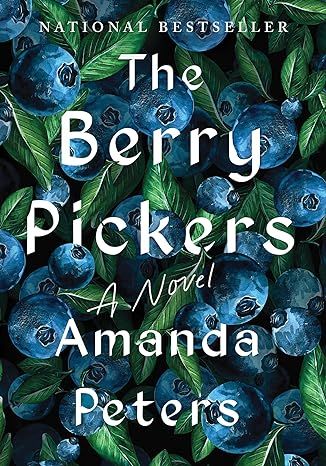
The Berry Pickers: A Novel
4.5
-
14,209
$14.99
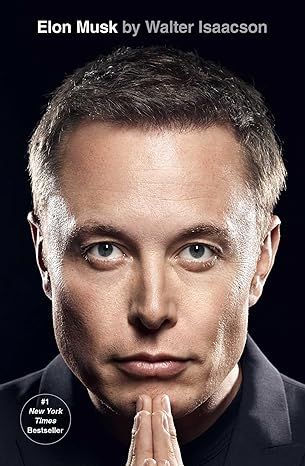
Elon Musk
4.7
-
15,272
$16.99

Just for the Summer
4.6
-
19,524
$11.99
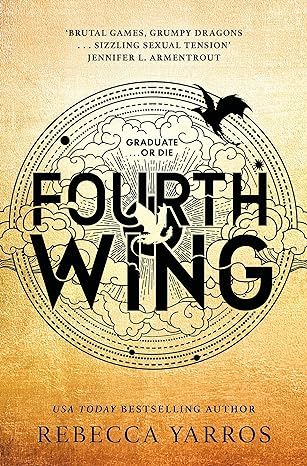
Fourth Wing (International Edition)
4.8
-
206,495
$7.95
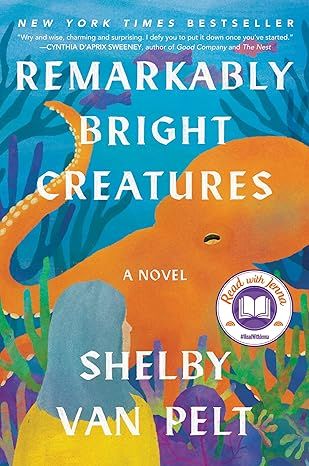
Remarkably Bright Creatures: A Read with Jenna Pick
4.6
-
65,556
$15.80
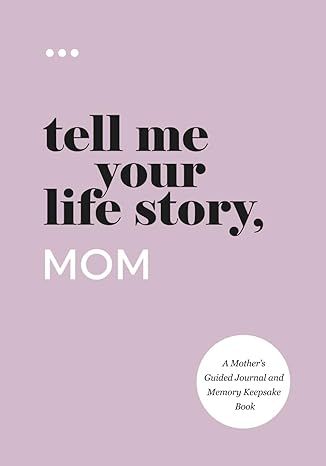
Tell Me Your Life Story, Mom: A Mother’s Guided Journal and Memory Keepsake Book (Tell Me Your Life Story® Series Books)
4.7
-
5,107
$11.24
